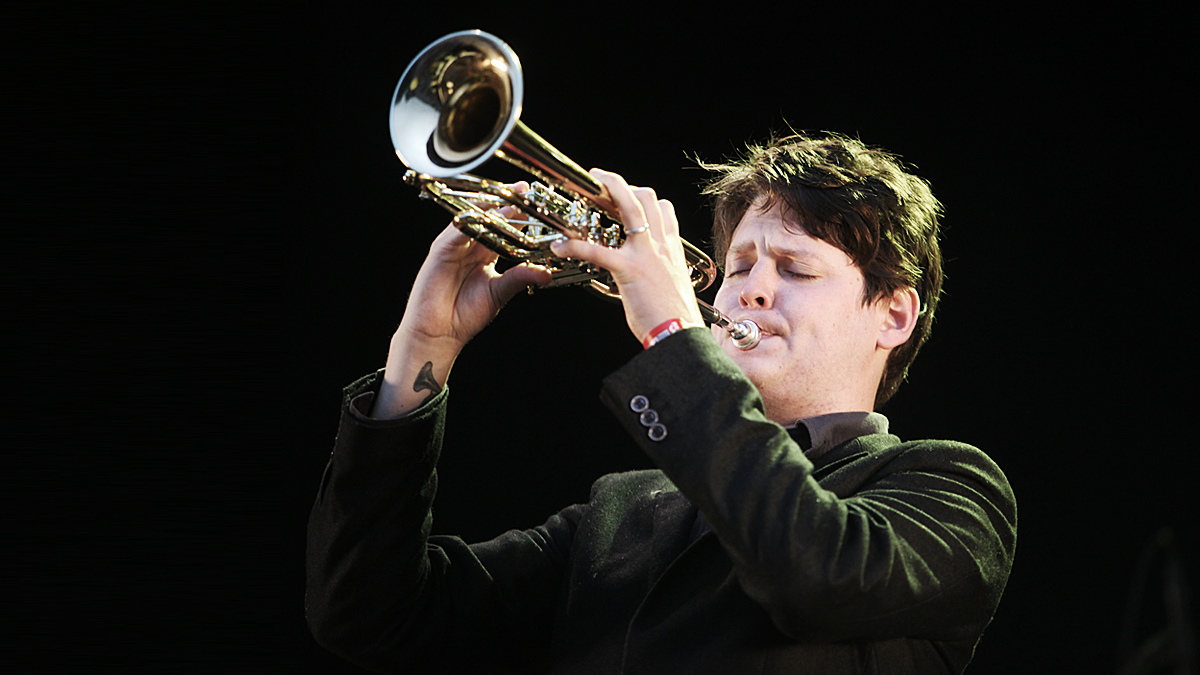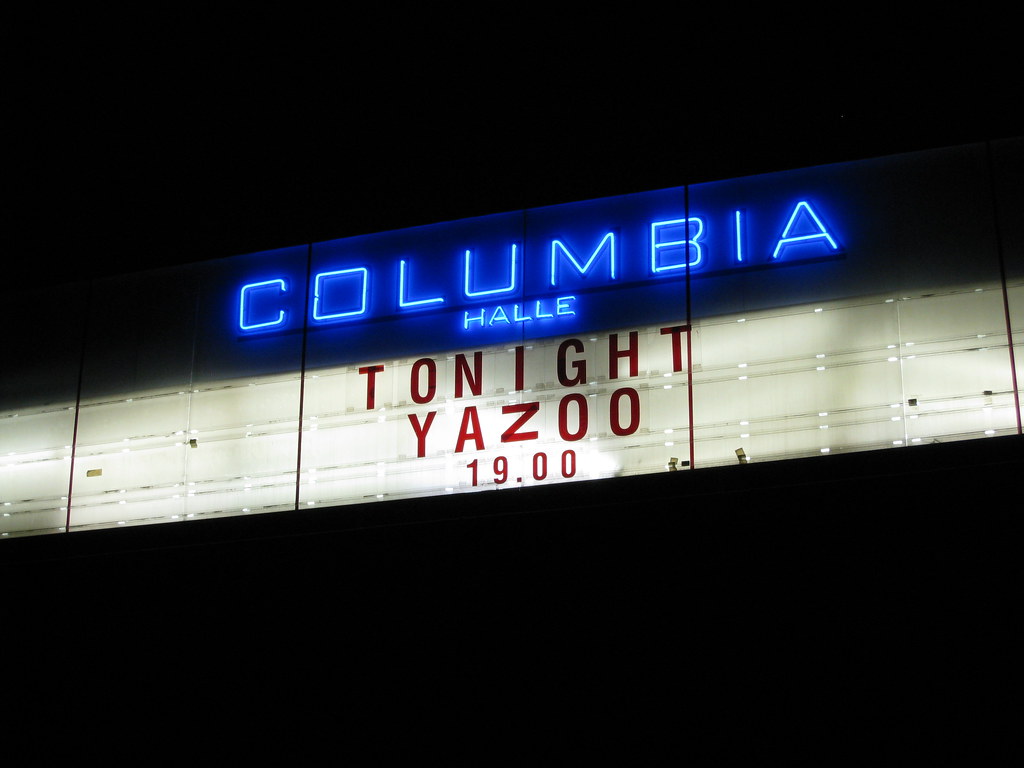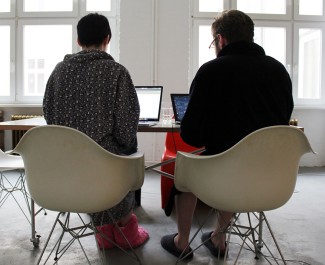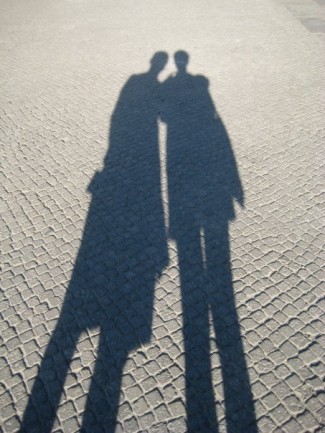Berlin: Love it or leave it
by Guest Blogger
 Last week I stood outside a tiny bar in Milan. It has a basement, which has become one of the last places in the city to put on small gigs. Talk turned to Berlin and, something I hear a lot these days, how it “used to be amazing.” Hang on just one moment my Milanese friends…
Last week I stood outside a tiny bar in Milan. It has a basement, which has become one of the last places in the city to put on small gigs. Talk turned to Berlin and, something I hear a lot these days, how it “used to be amazing.” Hang on just one moment my Milanese friends…
You’re standing there telling me how Berlin is “so ten years ago”, while drinking a plastic cup of beer that cost you five Euros? FIVE EUROS?! I’m not going to try and brew the very brilliance of Berlin down to the cost of a beer, but this makes me laugh. I’m tired of being told that I missed the party, or worse, that I’m one of the reasons why the party’s finally over.
Every day my Facebook feed is filled with embittered articles posted by expat friends that attempt to evaluate exactly why Berlin is no longer the creative, cost-effective centre of liberal attitudes and quality living that it used to be. I read, I yawn, and I wonder what it must be like to fall so out of love with a place that clearly used to inspire so much in these people.
 These articles read like letters to a lost lover, one that moved on and left the writer feeling, well, left behind. “Berlin, how could you, what happened to you? Why are you spending time with these hipsters, with their money and haircuts? You’ve changed Berlin, you’ve changed. Well I’ve moved on too”. Only they haven’t. Clearly they haven’t. They watch the city grow and evolve and they obviously resent it. The advice I’d give any of these disenfranchised expats? Move with the times or move on.
These articles read like letters to a lost lover, one that moved on and left the writer feeling, well, left behind. “Berlin, how could you, what happened to you? Why are you spending time with these hipsters, with their money and haircuts? You’ve changed Berlin, you’ve changed. Well I’ve moved on too”. Only they haven’t. Clearly they haven’t. They watch the city grow and evolve and they obviously resent it. The advice I’d give any of these disenfranchised expats? Move with the times or move on.
If you arrived in Berlin at a time when rents were much cheaper, and you felt like you had a monopoly on the place because you were part of a tiny minority brave enough to move here, then Bravo and Hooray for you. If in your mind you partied here as a pioneer ten years ago but don’t want to now, don’t go blaming Berlin for changing – when, over a decade, it’s pretty certain that you changed too.
I KNOW I’ve only been in Berlin for a year, but I’ve been through the intoxicating effect this city can have and already come out the other side. Admittedly it’s not all amazing all of the time. Berlin isn’t without its problems, and I can understand the importance of being aware of the wider socio-economic impact certain changes are having on the city and the people that live in it. I just don’t feel the need to let it influence my individual experience of the place to the extent that I’d encourage others not to follow me here. That’s not my hipster expat ignorance – it’s my commitment to making the best life I can for myself in an environment unlike any other I’ve personally experienced.
Many seem to argue that therein lies the problem – that people like me move here and expect certain things from a city they don’t contribute to, that it’s all about personal experience rather than shared consciousness. My own experience of Berlin is quite the opposite. I moved here to work a job I love but that I cannot afford to do in my home country. I have been fortunate enough to meet a huge variety of interesting and creative people, all contributing to the diverse culture offered by Berlin.
I’ve come to realise that If you don’t immerse yourself in the spirit of Berlin then it isn’t any fun to live here, and if all you do is have fun then you don’t REALLY live here. That’s the real appeal of Berlin, that you have to take the rough with smooth just the same as you would anywhere else. Only here, for me, riding out the rough times is ten times more tolerable.
I have friends who have come and gone, their love affair ended. They had their reasons; it was time to move on. Personally, I no longer feel the need to continually bang on to anyone who will listen about just how AMAZING Berlin is, but I also can’t imagine living anywhere else. If in the future we fall out of love, I hope I’ll have the maturity not to bitch to any other (un)interested party about how Berlin just doesn’t do it for me anymore. I’ll accept that it’s time to move on, and do so graciously. But not to a place where four beers cost me twenty Euros.
If you enjoyed this, then you should definitely check out “London: The Break Up” by Marie J. Burrows.
If you didn’t, let us know why in the comments below!












